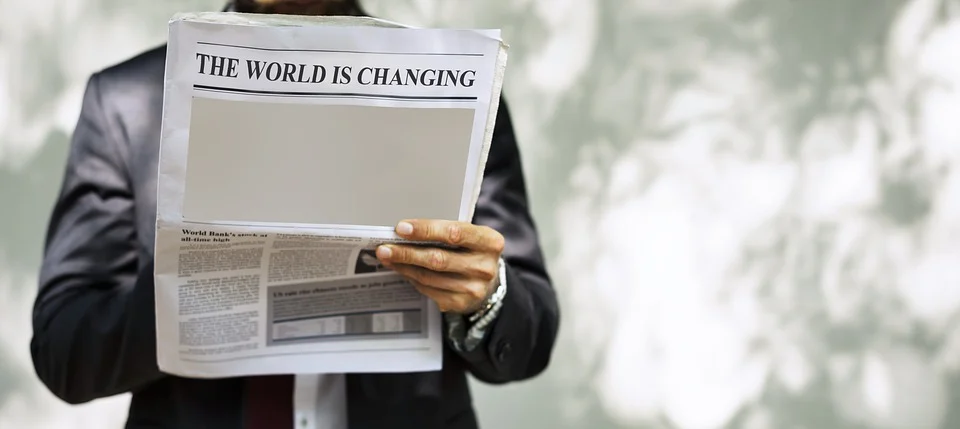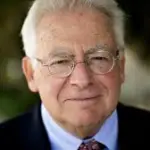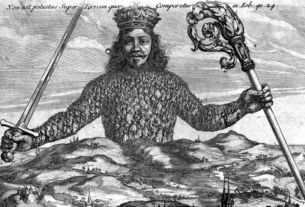Getting Beyond Power Politics: Narratives For A Trust-Centered World Order

By Louis René Beres, Emeritus Professor of International Law, Purdue University
“You are a citizen of the universe.”
Epictetus
In the final analysis, humankind can survive on this imperiled planet only by embracing more visionary ways of thinking. Among these new ways, which are indispensable, an overriding theme must concern balance-of-power politics. Still an unstable bedrock of contemporary international relations, the flawed ethos of a naively belligerent world politics, Realpolitik is increasingly unsuited for global survival. Soon, somehow, it must be replaced by a more patently durable, just and trust-based “template” for cosmopolis.
Most urgently, we will require an organically integrated global community of humankind.
There are many pertinent details. Today, any such template must take multiple considerations of biology into careful account. This means a view dictated not by only the usual core issues of war and peace, but also by assorted disease pandemics that may threaten human civilizations and populations – much as did medieval plague. Though, as a species, we have made obvious and commendable progress in science and technology, we remain enormously fragile and existentially vulnerable. Over time, especially if a more refractory virus spread should happen to coincide with catastrophic acts of war or terror (especially nuclear and/or biological war), entire societies could essentially be erased.
What next? This is not merely a difficult question; it defines the single most bewildering and meaningful query for all of planet earth. To begin, world leaders will need to plan rationally, systematically and self-consciously for nothing less consequential than global survival. Ultimately, inter alia, this will mean a willingness to realign traditionally narrow judgments of national self-interest with the much wider interests of humankind in toto. Although such a staggering requirement will at first appear unrealistic, nothing could actually be less pragmatic for nation-states than choosing to remain on the present collision course.
Left unchanged, or merely modified by variously token kinds of world order reform, global politics and economics will experience more frequent breakdowns. To argue otherwise, or even more foolhardy, to call for further hardening of world tribal conflict – as was the enduringly lamentable call of Donald Trump’s “America First” – would be to reject everything we have already learned about civilization, science and species survival.
Absolutely everything.
Fundamentally, it all boils down to this: Unless we finally take tangible steps to implement an organic and cooperative planetary civilization – one based on the irremediably central truth of human “oneness” -there will be no civilization at all. To credibly reject this conclusion would first require certain plausible expectations of an already-ongoing evolution toward worldwide peace and denuclearization. Right now, any such optimistic expectations would be starkly unfounded and simply out of the question.
The imperative nature of this assessment is clarified by our species’ manifest advances in creating mega-weapons and infrastructures. Augmenting these fearful examples of “progress,” certain major states could become increasingly committed to deterrent strategies of nuclear war fighting, cyber-warfare and/or “internet mercenaries.” To a considerable extent, the steady spread of internet warfare surrogates is being undertaken on behalf of authoritarian regimes.
What next?
About such rudimentary matters, let us be candid. We humans are still at the beginning. Until now, in such utterly primal circles, we have consistently managed to miss what is most important. Nonetheless, a central truth remains to be identified and continuously underscored: Always, there exists a latent but determinative “oneness” to world politics. Always, it is upon such overriding solidarity that any improved world order must be constructed.
There is more. This critical dimension of human identity can be encountered in certain vital but generally-ignored literatures, among such philosophic giants as Sören Kierkegaard, Sigmund Freud, Hermann Hesse, Carl Jung, Jose Ortega y’ Gasset, Miguel de Unamuno and Pierre Teilhard de Chardin. Its persistent rejection in “real life,” even in the world’s allegedly great universities, reflects a literally elemental threat to every single nation-state’s physical survival.
Antecedent questions should now arise. Why have we made ourselves (humans are not merely passive victims in these matters) so existentially vulnerable? The correct answer must reveal a continuous worldwide willingness to seek personal identity in variegated memberships. Significantly, we humans ordinarily fear solitude or “aloneness” more than anything else on earth, sometimes even more than death. Amid the palpably growing chaos that is already stampeding across whole continents, we still willingly abide a primal loyalty to dissembling claims of “tribe.”
Always, everywhere, individuals desperate “to belong” will more-or-less enthusiastically subordinate themselves to some all-consuming expectations of nation, class or faith. And more often than we might at first care to admit, such subordination carries with it an acceptance of “martyrdom.” Recalling the marooned English schoolboys in William Golding’s Lord of the Flies, we may be reminded here that the veneer of human civilization is razor-thin. Vastly impressive scientific and medical discoveries aside, whole swaths of humankind remain fiercely dedicated to various ancient practices of “sacrifice.”
With such utterly retrograde hopes, an entire species must remain in conspicuously grave peril. More precisely, in the end, such atavistic hopes lie at the heart of both war and terrorism. Is this really the best we can do?
By any reasonable definition, humans remain determinedly irrational as a species. Why? The best answer lies in our shortsighted views of power-politics or political “realism.” In the merciless light of history, these views are strange or incomprehensible. Not until the twentieth century, after all, did international law even bother to criminalize aggressive war.
There is more. Hope exists, we must assume, but now it must sing more softly, with circumspection, inconspicuously, almost sotto voce. Although counter-intuitive, the time for celebrating science, modernization and gleaming new information technologies per se is at least partially over. To survive together on this imperiled planet, each of us must first sincerely seek to rediscover an individual life that is detached from patterned obligations “to belong.” It is only after such rediscovery that we could finally hope to reconstruct world order on a reasonably sound basis. Inter alia, this will have to be a foundation of willing global interdependence and recognizable human “oneness.”
In his landmark work, The Decline of the West, first published during World War I, Oswald Spengler inquired: “Can a desperate faith in knowledge free us from the nightmare of the grand questions?” This remains a profound and indispensable query. The necessary answer would accept that the suffocating conflicts of life on earth can never be undone simply by improving global economies, building larger and larger missiles, fashioning or abrogating international treaties, replacing one sordid regime with another or by “spreading democracy.”
Most importantly, we might eventually learn that this persistently tribal planet lacks a tolerable future not because we humans have been too slow to learn what has been taught, but because what has been taught has too often been beside the point. It won’t be enough to assure our survival if great majorities of people can somehow acquire shiny new “personal devices,” or even own cars that can drive themselves. These are false and lazy goals, mainly contrived objectives that inevitably miss the main point: That point is merely to remain alive.
There is more. Traditional “remedies” will be insufficient because the planet as a whole would remain on its lethal trajectory of belligerent nationalism and tribal conflict. To wit, reminds French Jesuit thinker Pierre Teilhard de Chardin in The Phenomenon of Man: “The egocentric ideal of a future reserved for those who have managed to attain egoistically the extremity of `everyone for himself’ is false and against nature.”
But how to actually conceptualize alternative systems of world order that are based upon aptly cooperative visions? What are the recognizable “rules” for such conceptualizations? What kinds of thinking ought to be acknowledged and implemented?
To answer the last question first, pertinent thinking here must be expressly dialectical. This means, among other things, accepting that there can never be any conclusively final or permanent visions. World system change is continuous and dynamic, and heuristic models must therefore be temporary or transient. This is not a regrettable sign of inadequacy, but only an acknowledgment that proper “therapies” must follow correct “diagnoses.”
“What is, is.”
World order change is inevitable and unstoppable. The scholars’ and policy makers’ task is not to seek unachievable transformations, but to enter into this dynamic process with calculated deliberateness and intelligent design. In this connection, it will need to be understood there can be no objectively appropriate or optimal world order design visions.
Values
A contemplated alternative could be deemed desirable only from the expressed standpoint of certain already-stated values. In principle, at least, one scholar’s utopia could be another’s dystopia. Even if everyone involved could initially agree on the representative values of an improved world order (e.g., peace; social justice; pandemic disease management; economic well-being; climate change control, etc.), there is still sure to be widespread disagreement concerning the favored hierarchy or rank-ordering of these selected values.
Also, any such hierarchy must generally remain a subjective judgment. There can be no objective reasons to prefer one specific value or configuration of values to another. The only plausible exception to this judgment is the primal value of physical survival.
Hypotheses
Once equipped with an explicit set of ranked world order values, the scholars and policy-makers will need to link these values to those factors that are expected to sustain or maximize them. These presumed linkages are known to science as hypotheses. In these tentative explanations, values will serve as the “dependent variables” or subjects to be explained
Science has well-founded rules. Hypotheses are essential to any science-base inquiry, including the design of alternative world orders. These “informed hunches” are necessary to guide the search for analytic order among so many overlapping and discrepant facts. Without suitable hypotheses, there can obtain no reliable ways of determining which discrete facts are relevant and which are irrelevant.
Models
Models of alternative world order must followhypotheses. These models are determined by antecedent hypotheses. Indeed, these analyst-constructed visions are offered for the sole purpose of examining pertinent hypotheses. Without them, there could be no satisfactory way of knowing if any particular hypothesis or set of hypotheses has genuine promise.
They represent yet another example of why the adequacy of any particular world order design process is contingent upon prior methodological or philosophy of science decisions.
In the world order design process, models derive from hypotheses. They provide the analytic context within which any proper investigation must proceed. Exactly which models of order are actually under consideration must depend upon the already-selected hypothesis or hypotheses. This, in turn, could be more or less complex, depending upon the investigators’ own informed sense of what is calculably most important.
Recommendations
Once relevant models have been stipulated and investigated, scholars and policy makers must decide whether or not to recommend them. Always, this final critical decision must be informed by the twin criteria of desirability and feasibility. Before any alternative system of world order could be judged acceptable, it would have to appear suitably attractive in terms of the selected values (“suitability” being a necessarily subjective judgment) and reasonably capable of some actual implementation (“reasonably” here being a similarly subjective determination).
There is more. Feasibility issues are tied closely to desirability matters. They are interdependent or intersecting criteria of acceptability. Depending upon the extent of agreement on what might actually constitute a desirable world order alternative, the feasibility of a considered alternative could vary from one assessment to another. This is not to suggest, however, that widespread agreement would ipso facto signify feasibility. Any remaining differences concerning strategies of implementation could still render a particular recommendation unattainable.
“You are a citizen of the universe,” observes Epictetus, underscoring the core obligation of thinking holistically, of understanding and acknowledging the immutable oneness of human life on Planet Earth. Reciprocally, it is the individual human being writ large that must ultimately define this “universe.” Each man and woman is, in effect, a microcosm, a little world, and each must be nurtured not only for its own sake, but also for much wider planetary consequences (31).
“God loves from Whole to Part,” says Alexander Pope, “but human soul Must rise from Individual to the Whole.” (32) In the end, even in purely secular-scientific terms, any trust-based system of world order must be “human-centered.” By grasping this critical wisdom, scholars and policy-makers could finally craft a viable path beyond Realpolitik or balance-of-power politics.
From the start, this path would be configured toward expanding global coexistence. It would not represent just one more grievously fractured road to civilizational oblivion. Though patently visionary, it is the only path worth taking. The stakes could not be higher.

Louis René Beres was educated at Princeton (Ph.D., 1971), and is Emeritus Professor of International Law at Purdue. His twelfth book, Surviving Amid Chaos: Israel’s Nuclear Strategy, was published in 2016. His other writings have been published in Harvard National Security Journal; Yale Global Online; World Politics (Princeton); Bulletin of the Atomic Scientists; Israel Defense; Parameters: Journal of the US Army War College; Special Warfare; Oxford University Press; The Jerusalem Post; Infinity Journal; BESA Perspectives; US News & World Report; The Hill; and The Atlantic.
His Terrorism and Global Security: The Nuclear Threat (Westview, first edition, 1979) was one of the first scholarly books to deal specifically with nuclear
This article was first published in Horasis
Read more about: New World Order



